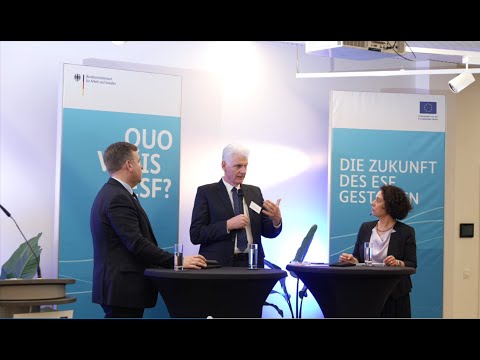
The European Social Fund (ESF) is the European Union’s main instrument for investing in people. In 2014-2022, the fund helped Member States progress towards achieving the EU’s 2030 headline targets in employment, training and poverty reduction.
EU 2030 SOCIAL TARGETS

At least 78% of the population aged 20 to 64 should be in employment by 2030

At least 60% of all adults should participate in training every year
by 2030

At least 15 million fewer people at risk of poverty or social exclusion by 2030
Achievements of ESF (2014-2022)

7.2 million people found a job

32% of unemployed or inactive people were in employment after participating in measures under the ESF

10.3 million people gained a qualification through an ESF-funded measure

3 million people participated in education and training funded by the ESF

Almost 15 million participations in social inclusion measures were funded by ESF

6.9 million participants were from disadvantaged groups

Almost 600,000 participants affected by homelessness or housing exclusion received support
People benefiting from ESF support
These findings come from the ESF Synthesis Report and are based on data from the 2022 annual implementation reports of the Member States, including measures funded by the Youth Employment Initiative (YEI) and the Recovery Assistance for Cohesion and Territories of Europe (REACT-EU) which tackles socio-economic consequences of the COVID-19 pandemic.



